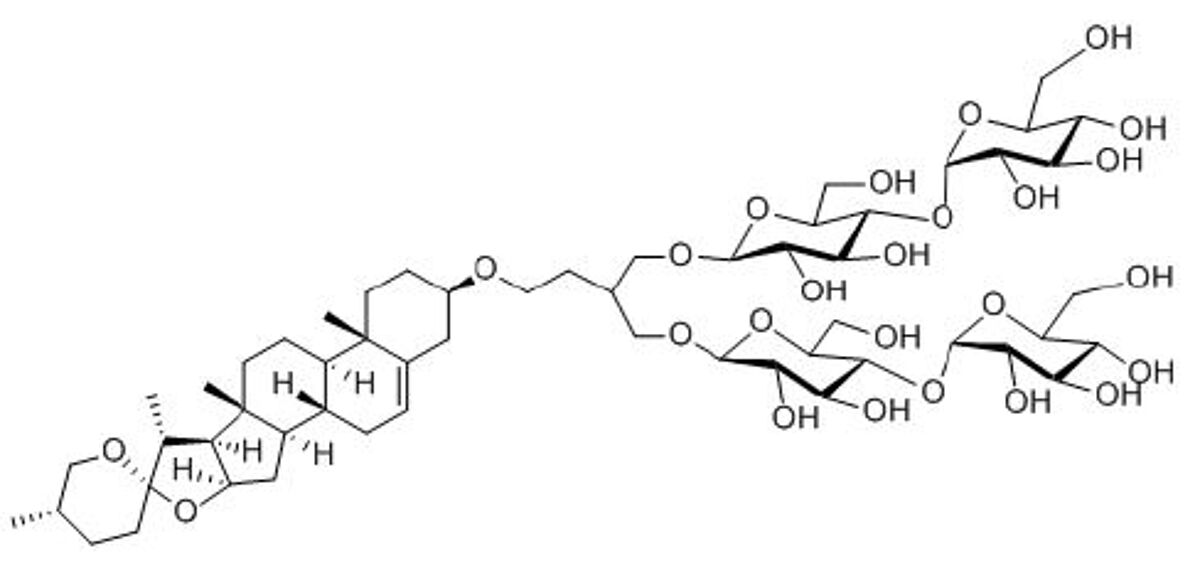Are you still using Digitonin to stabilize your membrane proteins? This is why you should switch to GDN
Integrated membrane proteins play a crucial role for the transfer of molecules and signals through cell membranes. Understandably, this makes them great targets for research in the life sciences, from understanding cell communication to developing new drugs. However, their hydrophilic nature makes them difficult to work with in aqueous solutions. While the use of detergents such as DDM or Digitonin have allowed various membrane proteins to be purified and analyzed, Digitonin in particular has a number of drawbacks. In particular, Digitonin is extracted from the foxglove plant, Digitalis purpurea. As a result, Digitonin may contain toxic byproducts such as digitoxin and digoxin.
GDN, a synthetic substitute for Digitonin, offers multipleadvantages for extracting membrane proteins.

Glyco-diosgenin, or GDN, is an amphiphile with a hydrophobic steroid-based group attached to a hydrophilic di-maltose head group. A drop-in substitute for Digitonin, GDN can be used for the solubilization and purification of membrane proteins, and also for Cryo-EM studies. As GDN is produced synthetically, batch-to-batch variation and toxic byproducts can be avoided — unlike Digitonin, which is a natural product. In addition, GDN has a lower critical micelle concentration (CMC: 18uM) and is more water-soluble compared to Digitonin (>10% at 20°C). Finally, GDN can be obtained at a lower price, allowing funding to be allocated to other needs.
Have we convinced you? Give GDN a try!
We offer Anatrace’s high-quality GDN101 (≥98% purity by HPLC analysis) in multiple sizes between 500 mg and 100 g. We also stock the 5 g sizeand offer it as 24h delivery for customers in Switzerland.
| Cat-No. | Item | Size | Price (CHF) |
|---|---|---|---|
| GDN101-500MG | GDN | 500 mg | 298.00 |
| GDN101-1G | GDN | 1 g | 542.00 |
| GDN101-5G | GDN | 5 g | 2'298.00 |
| GDN101-25G | GDN | 25 g | price on request |
Literature
Description of GDN and performance comparison to DDM:
Chae, P. S., et al. (2012) Chemistry 18(31), 9485-9490.
Some recent Cryo-EM studies using GDN instead of Digitonin:
Koehl, A., et al. (2018) Nature 558(7711): 547–552.
She, J., et al. (2018) Nature 556(7699), 130–134.
Hartler, A. M., et al. (2019) Nat Struct Mol Biol. 26(1): 78–83.
Walter, J. D., et al. (2019) eLife 8: e46986.
Qian, H., et al. (2019) Nat Commun. 10: 2320.
Shanmuganathan, V., et al. (2019) eLife 8: e46267.
Singh, A. K., et al. (2018) Nat Struct Mol Biol. 25(9): 805–813.

